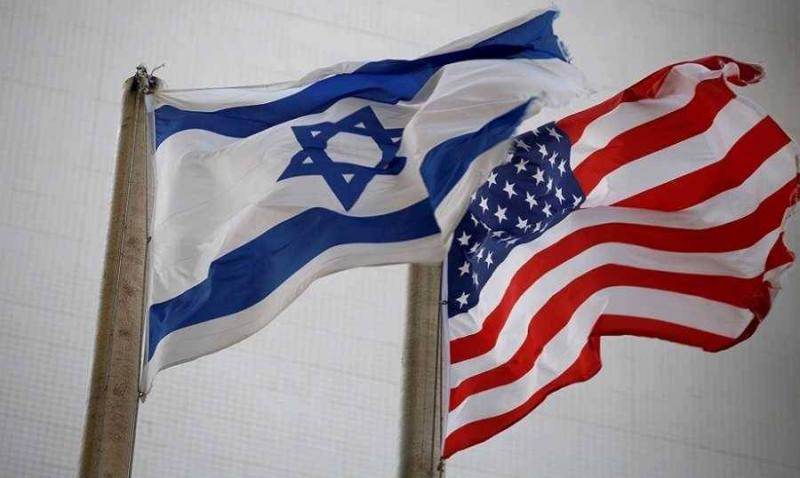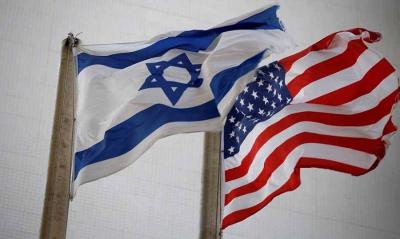Regardless of whether there is a connection between the field escalation in the south and the renewed internal movement with the support of the Arab-international quintet committee, the upcoming week seems to witness conditions racing towards the celebration of Eid al-Adha, and the onset of the summer season after that. This is evident in the fluctuating or extreme heat, as citizens have witnessed numerous fires devastating swathes of land and buildings in Kiryat Shmona, resulting in 27 casualties among those trying to extinguish the flames, including seven soldiers, according to "Al-Liwa."
This dangerous situation has led to field developments, prompting cabinet ministers to head north before a war council meeting to determine how to respond to the new situation in the south extending to the Israeli north. Political sources emphasized that Lebanon received multiple warnings of a widespread Israeli aggression in response to Hezbollah attacks against Israel, which have come from several countries since the onset of the Israeli war on Gaza. It was noted that every foreign envoy or official visiting Lebanon carried with them a public warning intended for the Lebanese officials.
Sources pointed out that the denial by some countries friendly to Lebanon regarding the transmission of Israeli threats does not change the reality, as Israeli threats are consistently relayed through statements from Israeli political and military leaders on a daily basis, and have intensified in recent days, clearly indicating that these threats are serious and have entered a dangerous phase. The scope of the Israeli war may expand to Lebanon, surpassing the framework established since the outbreak of military confrontations between Hezbollah and the Israeli occupation forces in the south and reaching deeper into Lebanese territory.
Following this escalation, Washington has intervened, stating through the U.S. State Department that they do not support an open war against Hezbollah in Lebanon but endorse Israel's right to defend itself, noting that the situation along the Lebanese-Israeli border remains dangerous and that they are working to contain it. The European Union called on the parties along the Lebanese-Israeli border to exercise restraint and prevent rising tensions, expressing increased concern over the escalation of tensions and destruction, as well as the forced displacement occurring along the border.
For de-escalation, Israeli Channel "Kan" revealed that a senior U.S. official said they had requested Israel not to escalate in the north. Additionally, French President Emmanuel Macron communicated with Israeli Prime Minister Benjamin Netanyahu, advising him not to initiate any escalation in the north, reiterating that this is an international request.
The Israeli public broadcaster quoted war cabinet member Minister Ben Gvir during his visit to the northern border, saying he is fighting to conclude operations there by September, indicating that resolution in the north could be through either negotiation or escalation.
Israeli Chief of Staff Herzi Halevi visited the northern border with Lebanon, telling soldiers there: "We are approaching a critical point on the northern border where decisions must be made," adding that the Israeli army is ready and prepared to launch an attack.
On the party side, Hezbollah's Deputy Secretary-General Sheikh Naim Qassem declared that the party is prepared for a comprehensive war if Israel desires it, clarifying: "We used only a fraction of our capabilities commensurate with the nature of the battle," and revealing that Al-Ridwan forces have not withdrawn from the Lebanese-Israeli border, exposing threats in recent months, and that the response was that one Lebanese party is linked to Gaza.
In an inter-party move, the Democratic Gathering commenced efforts to engage various parliamentary blocs, initiated by MP Taymour Jumblatt, who began by visiting Maarab and then Merna Shalouhi, where he met with the head of the Free Patriotic Movement, MP Gibran Bassil, and his team of deputies and advisors.
Political sources informed "Al-Liwa" that the Progressive Socialist Party's efforts faced no opposition, as evidenced by the contentment reflected in most meetings held by its delegations with other blocs. They suggested that the ongoing meetings have yet to conclude, and the outcome should be awaited. These sources considered that the topic of a consensus president supported by the Democratic Gathering has long been a demand of the bloc, but questions remain regarding what constitutes a consensus president and whether there is a specific list of candidates for this role.
They regarded the next step for the political forces as crucial in determining whether these endeavors progress or stagnate, noting that such efforts do not contradict other seeks, especially regarding proposing alternative presidential candidates.
According to a statement from the Progressive Socialist Party, former Minister Ghazi Aridi visited, on behalf of former MP Walid Jumblatt, President Nabih Berri and the political assistant to the Secretary-General of Hezbollah, Hussein Khalil, as part of the party's initiative to encourage dialogue and consultation regarding constitutional entitlements, foremost among them the presidency, amidst the critical phase Lebanon is navigating under Israeli aggression against Gaza and Lebanon.
Sources indicated that the Shiite duo informed Minister Ghazi Aridi that Samir Geagea is the one obstructing the election of a president, with information suggesting (S.N.) that if Geagea does not recognize Berri as Speaker of the Parliament, he is seeking to find a second parliament. Leaders of the Shiite duo do not hide their belief that the initiative from the Democratic Gathering will likely meet the same fate as the French initiative and the movements of French envoy Jean-Yves Le Drian, along with previous initiatives such as the National Moderation Bloc’s, succinctly stating that the initiative failed before it began, understandably due to known obstructions.




